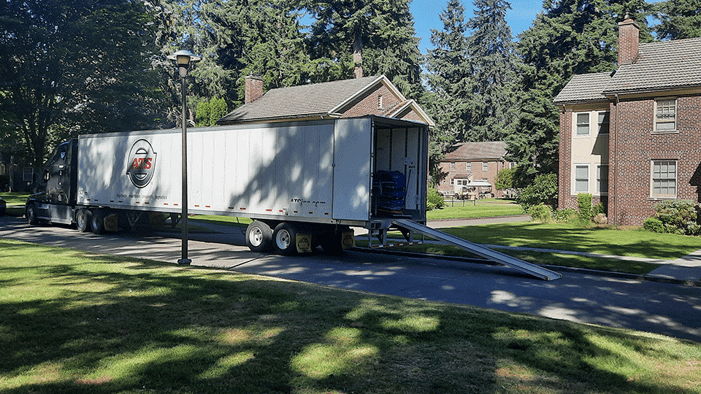
In pursuit of striking a balance between price and service — there are several ways to field spot quotes in the transportation world. As companies age and their procedures unfurl, so too do their methods for sourcing pricing and securing transportation capacity.
Some do so by reaching out to trusted carriers via emails, phone calls or using well-worn customer portals that relay transaction history, various performance data points and useful insights.
Others, utilize online bidding portals to receive rates for their upcoming loads. This allows these businesses to list each shipment individually and asynchronously accept quotes for them.
When used correctly, accepting bids via online portals can impact the success of the carriers and shippers alike; allowing each party to perform their duties expeditiously.
That said, conducting spot bids using a portal is not the right solution for every situation or shipment. Understanding when this tactic should be used will help you avoid several problems that often stem from its misuse.
Here at Anderson Trucking Service (ATS), we’ve been helping shippers around North America move their freight since 1955. Recently, we’ve seen firsthand the profound impact the internet age and online bidding platforms have had on the transportation of goods from A to B.
In this article, you’ll learn the true pros and cons of using a portal to conduct your transportation bids, including when doing so is typically most effective and when it’s plainly not.
Below, you’ll find information broken down as follows:
- The advantages of using a portal to conduct your bids
- The disadvantages of using a portal to conduct your bids
- When using a portal for bids makes the most sense
- When using a portal for bids should be avoided
The Advantages of Using a Portal For Transportation Bids
Technology makes many aspects of our lives easier, both personally and professionally. This pattern holds true in the transportation industry where technology continues to assert its presence. And, when managed appropriately, using a portal to conduct bids can benefit shippers in a number of ways.
Namely, the top three advantages of using a portal to conduct your transportation bids are:
- Using a portal for bids can create efficiencies
- Using a portal for bids can reduce your freight rates
- Using a portal for bids can increase your access to viable capacity
Let’s briefly touch on each of these. . .
1. Using a Portal For Bids Can Create Efficiencies
First and foremost, portal-based transportation bidding is a time saver — at least on the front end. You see, these technologies make it almost too easy to receive rates for a load; simply input the necessary information (load specifications, lane details, locations, etc.), set a timeframe during which a bid will occur and. . . check back later.
That's it.
As a result, using portals to conduct your bids takes far less scrupulous management than other methods — like receiving pricing over email — would require. In turn, leaning on a portal helps companies allocate their manpower elsewhere, giving time back to logistics employees and allowing efficiencies in other parts of a supply chain.
This advantage only multiplies for high-volume shippers who sometimes have hundreds of shipments to arrange. With the assistance of a bidding portal, vast quantities of loads can be lined up with ease and (relatively) little oversight.
2. Using a Portal For Bids Can Reduce Your Freight Rates
In many scenarios, fielding quotes from carriers via a portal can lead to more competitive pricing than sourcing rates elsewhere would allow.
Since up-to-date bid information is often openly displayed for each shipment (as is the case the majority of the time) a self-regulated free market typically emerges within these bidding portals; one carrier bids, another one bids lower, the next bids lower still, etc.
As a result, when a shipper’s freight aligns with the needs of multiple carriers, they can expect to pay the lowest rate available as carriers bid against one another.
3. Using a Portal For Bids Increases Your Access to Capacity
While bid portals allow shippers to control which carriers they allow to contend for their business, portals also help shippers communicate with, and source capacity from, a vast number of viable service providers within a given area.
For this reason, bidding portals make it easier for shippers to secure capacity. Instead of relying on a smaller list of preferred carriers, accepting quotes via a portal helps shippers extend their reach beyond the confines of their usual network, allowing them to pick and choose from many, if not all, available options.
In turn, the companies that use portals also rest assured that no stone was left unturned in their pursuit of a transportation solution.

The Disadvantages of Using a Portal For Bids
Like everything else, using a portal to conduct your transportation bids comes with some downsides to note. While this can be a great solution in many situations, it’s not right in every instance. As such, it’s crucial that you understand the true downsides that come with fielding freight quotes using a portal.
The three largest disadvantages of using a portal for your transportation bids are:
- Using a portal for bids can lead to shoddy service
- Using a portal for bids makes it difficult to develop partnerships
- Using a portal for bids can be unreliable and expensive in times of urgency
1. Using a Portal For Bids Can Lead to Shoddy Service
Sometimes, using a portal for their bids forces shippers into the mindset of making their selection decisions based solely on the dollar signs they see. But this is to be expected; getting freight from A to B is just another expense shippers weather.
However, in such a volatile, unpredictable industry, giving a carrier your business simply because they agreed to move your load at the lowest price, can be a mistake.
It’s never recommended for shippers to make their carrier selection decisions based on price, or any metric, alone. That said, accepting bids using a portal incentivizes this practice, causing many companies to watch their loads fail when their initial provider falls through.
Related: What Does Cheap Freight Shipping Really Cost You?
2. Using a Portal For Bids Makes It Difficult to Develop Partnerships
When it comes to your supply chain, you’re only as good as the partnerships you hold. Without great carriers in their corner and expert providers to lean on every step of the way, many companies struggle to optimize their processes and develop inter-company procedures/competencies over time.
By consistently using portals to receive quotes, shippers sacrifice the benefit of developing long-term partnerships with a select number of carriers. Instead, these companies use different providers every time, never solidifying a relationship with any of them.
Unfortunately, this comes at the detriment of both their deadlines and their budgets as learning the preferences, procedures and capabilities of a carrier often leads to cost savings and efficiency in the long run.

3. Using a Portal For Bids is Unreliable and Expensive With Urgency
The last disadvantage of collecting spot bids via a portal is a huge one: without proper lead time, using a portal is neither efficient nor cost-effective.
Here’s why. . .
For carriers, guaranteed freight located in the right place at the right time is a big deal. And, when a shipper has an urgent load to move — like a same-day pick-up, for example — it isn’t advantageous for a carrier to wait while that shipment is awarded.
This can take hours, and to maximize their income, drivers are motivated to make the most each every day. Urgent shipments that are posted in a portal don’t help them do so.
Beyond this, since carriers strive to book their trucks out days into the future, urgent shipments posted to a portal battle the reality of having far fewer options to select from — making this method far less effective (and efficient) on short notice.
Finally, although using a bidding portal can be financially prudent for shipments with plenty of lead time, the opposite is true of more urgent loads. You see, in situations of urgency — when a shipper absolutely needs a solution, leading to their shipment’s posting on multiple load boards — local and area truck drivers gain more bargaining power.
In recognition of this, these carriers often price their services above the going rate, charging shippers a pretty penny to get their freight moving in a timely manner.
Should You Use a Portal to Conduct Bids?
Now that you have an overview of the major pros and cons of using a portal to conduct your transportation bids, let’s take this a step further. Realistically, using a portal makes more sense in some situations than it does in others.
And, though those pros and cons should help you going forward, let’s talk through the true best and worst-case scenarios for portal-based bidding.
When Does Using a Portal For Bids Make The Most Sense?
By and large, portal-based bid collection is most effective for less-complex shipments; shipments that don’t require any special instructions, refined expertise or comprehensive communication.
Due to the asynchronous nature of this process — the fact that multiple carriers submit bids at various times with little/no response from the shipper — sourcing capacity through a portal is less effective as the complexity of a shipment rises.
As such, using a bidding portal makes the most sense for palletized dry van and refrigerated shipments as well as legal flatbed loads.
Additionally, harking back to the advantages of this process, using a portal is also very impactful for high-volume shippers. For this reason, companies in retail/general merchandise, food and beverage and manufacturing industries that move more than 50 loads per day find the most value in this tactic.
On the other hand, you’ll find it far more difficult to get reliable service for moving your over-dimensional freight.
When Does Using a Portal For Bids Make The Least Sense?
As previously mentioned, for companies that move complex freight like specialized open-deck or heavy haul shipments, using a bidding portal makes little sense. These types of shipments take a high level of oversight, thorough communication and expertise to get right, limiting the value using a portal brings to this process.

To avoid mishaps, price hikes and delays, it’s better to secure capacity for these specialized loads and transportation projects elsewhere.
Want More From Your Transportation Supply Chain?
At this point, you understand both the upsides and the downsides of using a portal to collect quotes for your next shipment(s). This knowledge should help you optimize your supply chain and save some money going forward.
That said, managing the movement of your freight is a task riddled with intricacy and preparation will go a long way here. Often, people in your position — those charged with overseeing a crucial piece of their company’s activities — struggle to manage their time appropriately with so many things jostling for their attention.
While using a portal is certainly a great way to save yourself some time when it makes sense, there’s more you can do.
If you’re looking for ways to cut out distractions, reduce mishaps and put your time at the office to the best use possible, check out this article where we outline the five biggest time wasters for logistics managers and provide some tactics for avoiding them.
Finally, all this talk about the benefits of developing long-term transportation-industry partnerships may have you itching to start your own. If so, please don’t hesitate to contact us today. We’d be happy to show you how a reliable carrier impacts the lives of their customers.



